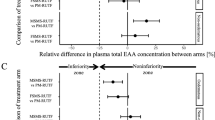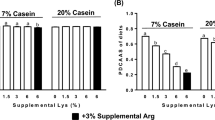Abstract
Background/Objectives:
Protein substitutes (PS) are an essential component in the dietary management of phenylketonuria (PKU). PS are available as phenylalanine-free amino-acid mixtures (AAM), glycomacropeptide-based PS (GMP) and large neutral amino acids (LNAA). There is a lack of information regarding their availability in different countries and comparison of their nutritional composition is limited. The objectives of this study were to identify the number of PS available in different European countries and Turkey and to compare their nutritional composition.
Subjects/Methods:
Members of the European Nutritionist Expert Panel on PKU (ENEP) (Portugal, Spain, Belgium, Italy, Germany, Netherlands, United Kingdom, Denmark and Turkey) provided data on PS available in each country. The nutritional composition of PS available in Portugal was analyzed.
Results:
The number of PS available in each country varied from 30 (Turkey) to 105 (Germany), with a median of 64. GMP was available only in Portugal, whereas LNAA was an option in Portugal, Italy, Turkey and Denmark. Some PS were designed for weaning. Many PS did not contain added fat and fiber. GMP contained the highest carbohydrate (CHO) and energy content as well as higher LNAA content compared with AAM. Only one AAM contained added fructo-oligosaccharides and galacto-oligosaccharides. AAM designed for the first year of life had the highest CHO, fat and LNAA contribution. Liquid AAM had lower CHO and fat contents compared with powdered AAM, but contained higher LNAA.
Conclusions:
There was widely dissimilar numbers of PS available in different countries. Nutritional composition of different PS was variable and should be considered before prescription.
This is a preview of subscription content, access via your institution
Access options
Subscribe to this journal
Receive 12 print issues and online access
$259.00 per year
only $21.58 per issue
Buy this article
- Purchase on Springer Link
- Instant access to full article PDF
Prices may be subject to local taxes which are calculated during checkout

Similar content being viewed by others
References
Camp KM, Parisi MA, Acosta PB, Berry GT, Bilder DA, Blau N et al. Phenylketonuria Scientific Review Conference: state of the science and future research needs. Mol Genet Metab 2014; 112: 87–122.
MacDonald A . Diet and compliance in phenylketonuria. Eur J Pediatr 2000; 159 (Suppl 2), S136–S141.
Yi SH, Singh RH . Protein substitute for children and adults with phenylketonuria. Cochrane Database Syst Rev 2008 (4), CD004731.
Blau N, MacDonald A, van Spronsen F . There is no doubt that the early identification of PKU and prompt and continuous intervention prevents mental retardation in most patients. Mol Genet Metab 2011; 104 (Suppl), S1.
Rocha JC, van Spronsen FJ, Almeida MF, Ramos E, Guimaraes JT, Borges N . Early dietary treated patients with phenylketonuria can achieve normal growth and body composition. Mol Genet Metab 2013; 110 (Suppl), S40–S43.
Dokoupil K, Gokmen-Ozel H, Lammardo AM, Motzfeldt K, Robert M, Rocha JC et al. Optimising growth in phenylketonuria: current state of the clinical evidence base. Clin Nutr 2012; 31: 16–21.
Rocha JC, Martins MJ . Oxidative stress in phenylketonuria: future directions. J Inherit Metab Dis 2012; 35: 381–398.
Enns GM, Koch R, Brumm V, Blakely E, Suter R, Jurecki E . Suboptimal outcomes in patients with PKU treated early with diet alone: revisiting the evidence. Mol Genet Metab 2010; 101: 99–109.
Robert M, Rocha JC, van Rijn M, Ahring K, Belanger-Quintana A, MacDonald A et al. Micronutrient status in phenylketonuria. Mol Genet Metab 2013; 110 (Suppl), S6–S17.
Stolen LH, Lilje R, Jorgensen JV, Bliksrud YT, Almaas R . High dietary folic acid and high plasma folate in children and adults with phenylketonuria. JIMD Rep 2014; 13: 83–90.
Evans S, Daly A, MacDonald J, Preece MA, Santra S, Vijay S et al. The micronutrient status of patients with phenylketonuria on dietary treatment: an ongoing challenge. Ann Nutr Metab 2014; 65: 42–48.
Aguiar A, Ahring K, Almeida MF, Assoun M, Belanger Quintana A, Bigot S et al. Practices in prescribing protein substitutes for PKU in Europe: no uniformity of approach. Mol Genet Metab 2015; 115: 17–22.
Pietz J, Kreis R, Rupp A, Mayatepek E, Rating D, Boesch C et al. Large neutral amino acids block phenylalanine transport into brain tissue in patients with phenylketonuria. J Clin Invest 1999; 103: 1169–1178.
Strisciuglio P, Concolino D . New strategies for the treatment of phenylketonuria (PKU). Metabolites 2014; 4: 1007–1017.
Matalon R, Michals-Matalon K, Bhatia G, Burlina AB, Burlina AP, Braga C et al. Double blind placebo control trial of large neutral amino acids in treatment of PKU: effect on blood phenylalanine. J Inherit Metab Dis 2007; 30: 153–158.
Schindeler S, Ghosh-Jerath S, Thompson S, Rocca A, Joy P, Kemp A et al. The effects of large neutral amino acid supplements in PKU: an MRS and neuropsychological study. Mol Genet Metab 2007; 91: 48–54.
Ney DM, Blank RD, Hansen KE . Advances in the nutritional and pharmacological management of phenylketonuria. Curr Opin Clin Nutr Metab Care 2014; 17: 61–68.
Ney DM, Hull AK, van Calcar SC, Liu X, Etzel MR . Dietary glycomacropeptide supports growth and reduces the concentrations of phenylalanine in plasma and brain in a murine model of phenylketonuria. J Nutr 2008; 138: 316–322.
van Calcar SC, MacLeod EL, Gleason ST, Etzel MR, Clayton MK, Wolff JA et al. Improved nutritional management of phenylketonuria by using a diet containing glycomacropeptide compared with amino acids. Am J Clin Nutr 2009; 89: 1068–1077.
Rocha JC, MacDonald A, Trefz F . Is overweight an issue in phenylketonuria? Mol Genet Metab 2013; 110 (Suppl), S18–S24.
European Commission. Foods for Special Medical Purposes. Available at: http://ec.europa.eu/food/food/labellingnutrition/medical/index_en.htm (last accessed 10th November 2014).
MacDonald A, Evans S, Cochrane B, Wildgoose J . Weaning infants with phenylketonuria: a review. J Hum Nutr Diet 2012; 25: 103–110.
Hagedorn TS, van Berkel P, Hammerschmidt G, Lhotakova M, Saludes RP . Requirements for a minimum standard of care for phenylketonuria: the patients' perspective. Orphanet J Rare Dis 2013; 8: 191.
Blau N, Belanger-Quintana A, Demirkol M, Feillet F, Giovannini M, MacDonald A et al. Management of phenylketonuria in Europe: survey results from 19 countries. Mol Genet Metab 2010; 99: 109–115.
van Spronsen FJ, Ahring KK, Gizewska M . PKU—What is daily practice in various centres in Europe? Data from a questionnaire by the scientific advisory committee of the European Society of Phenylketonuria and Allied Disorders. J Inherit Metab Dis 2009; 32: 58–64.
Koletzko B, Beyer J, Brands B, Demmelmair H, Grote V, Haile G et al. Early influences of nutrition on postnatal growth. Nestle Nutr Inst Workshop Ser 2013; 71: 11–27.
MacDonald A, Cochrane B, Wopereis H, Loveridge N . Specific prebiotics in a formula for infants with phenylketonuria. Mol Genet Metab 2011; 104 (Suppl), S55–S59.
Koletzko B, Brands B, Chourdakis M, Cramer S, Grote V, Hellmuth C et al. The Power of Programming and the EarlyNutrition Project: opportunities for health promotion by nutrition during the first thousand days of life and beyond. Ann Nutr Metab 2014; 64: 187–196.
MacDonald A, Lilburn M, Davies P, Evans S, Daly A, Hall SK et al. 'Ready to drink' protein substitute is easier is for people with phenylketonuria. J Inherit Metab Dis 2006; 29: 526–531.
Gokmen-Ozel H, MacDonald A, Daly A, Hall K, Ryder L, Chakrapani A . Long-term efficacy of 'ready-to-drink' protein substitute in phenylketonuria. J Hum Nutr Diet 2009; 22: 422–427.
MacDonald A, Ahring K, Dokoupil K, Gokmen-Ozel H, Lammardo AM, Motzfeldt K et al. Adjusting diet with sapropterin in phenylketonuria: what factors should be considered? Br J Nutr 2011; 106: 175–182.
Rocha JC, Martel F . Large neutral amino acids supplementation in phenylketonuric patients. J Inherit Metab Dis 2009; 32: 472–480.
van Spronsen FJ, de Groot MJ, Hoeksma M, Reijngoud DJ, van Rijn M . Large neutral amino acids in the treatment of PKU: from theory to practice. J Inherit Metab Dis 2010; 33: 671–676.
Ahring KK . Large neutral amino acids in daily practice. J Inherit Metab Dis 2010; 33 (Suppl 3), S187–S190.
Humphrey M, Truby H, Boneh A . New ways of defining protein and energy relationships in inborn errors of metabolism. Mol Genet Metab 2014; 112: 247–258.
Kaiser L, Allen LH . Position of the American Dietetic Association: nutrition and lifestyle for a healthy pregnancy outcome. J Am Diet Assoc 2008; 108: 553–561.
Lammardo AM, Robert M, Rocha JC, van Rijn M, Ahring K, Belanger-Quintana A et al. Main issues in micronutrient supplementation in phenylketonuria. Mol Genet Metab 2013; 110 (Suppl), S1–S5.
Author information
Authors and Affiliations
Corresponding author
Ethics declarations
Competing interests
All authors have received compensation from Merck Serono as members of the European Nutritionist Expert Panel in PKU. AM has received research funding and honoraria from Nutricia, Vitaflo International, Arla, Sobi and Merck Serono. She is a member of the European Nutrition Expert Panel (Merck Serono international), a member of Sapropterin Advisory Board (Merck Serono international) and a member of the Advisory Board ELEMENT (Danone-Nutricia). MJP and MFdA declare no conflict of interest.
Rights and permissions
About this article
Cite this article
Pena, M., de Almeida, M., van Dam, E. et al. Protein substitutes for phenylketonuria in Europe: access and nutritional composition. Eur J Clin Nutr 70, 785–789 (2016). https://doi.org/10.1038/ejcn.2016.54
Received:
Revised:
Accepted:
Published:
Issue Date:
DOI: https://doi.org/10.1038/ejcn.2016.54
This article is cited by
-
Phenylalanine free infant formula in the dietary management of phenylketonuria
Orphanet Journal of Rare Diseases (2023)
-
Carbohydrate status in patients with phenylketonuria
Orphanet Journal of Rare Diseases (2018)
-
Dietary patterns, cost and compliance with low-protein diet of phenylketonuria and other inherited metabolic diseases
European Journal of Clinical Nutrition (2018)
-
Nutritional status in patients with phenylketonuria using glycomacropeptide as their major protein source
European Journal of Clinical Nutrition (2017)



